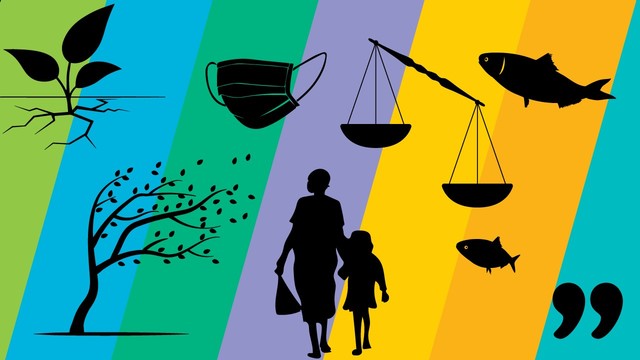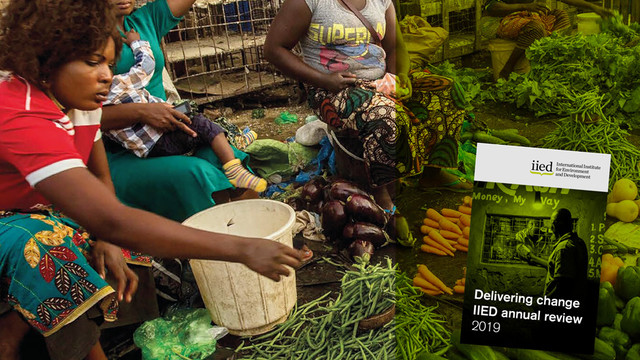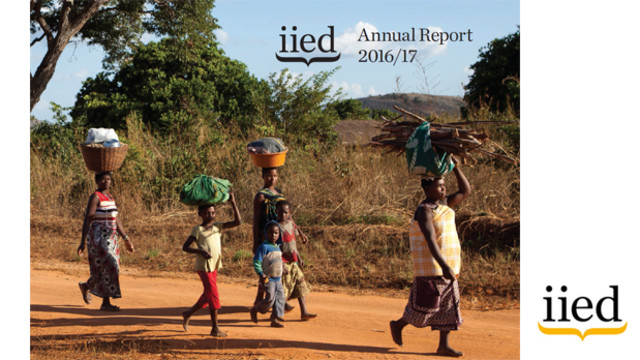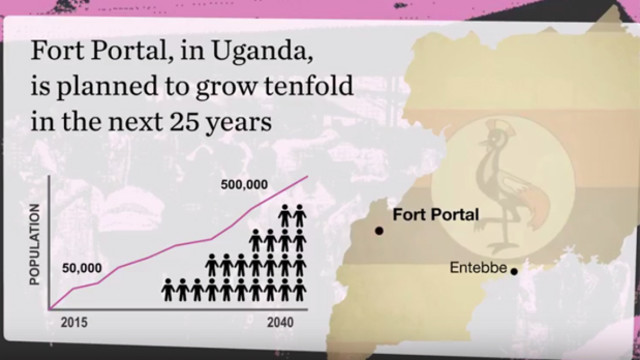IIED's 2015/2016 annual report focuses on partnership
The International Institute for Environment and Development (IIED) has published its 2015/2016 annual report.

IIED's 2015-16 Annual Report relates how the institute works in partnership across the globe (Image: Arc/IIED)
IIED's Annual Report for 2015/16 looks at powering global change through partnership, and describes the many different types of partnerships that enable IIED to deliver positive impact at both international and local level.
Collaboration has been central to IIED's work since the institute started in 1976, and IIED has built long-standing relationships with individuals, communities and organisations in more than 60 countries. This year's annual report analyses the elements needed for successful collaboration and illustrates the wide variety of partnerships that bring expertise, energy and local experience to IIED's activities.
The full report is available online from IIED's Publications Library, and a four-minute animation can be viewed on IIED's YouTube channel.
Introducing the Annual Report, IIED director Andrew Norton said 2015 saw a important shift in the global agenda, with development recognised as a universal enterprise that has sustainability at its core.
"Our work sits in an important place, linking global policy with local practice. And to do this well, we work in partnership," he said. "This allows us to understand local realities, to build capacities, and to help provide a voice at the global level for those who otherwise would not be heard."
Learning effective collaboration
The report, which highlights a series of partnerships involving IIED's work from 2015/2016, says successful partnerships involve more than simply working together. Instead, effective collaboration is made possible by developing mature, mutually beneficial relationships.
This report gives striking examples of how, by working in partnership, IIED can support greater social and economic justice, build the resilience of poor countries and poor people, and amplify the voices of the marginalised in national and global debates. – Rebeca Grynspan, chair, IIED
IIED's partnerships have common characteristics that help to deliver successful outcomes, such as shared decision making, as well as shared benefits and learning. It is also important to have common values and beliefs and compatible ways of working, as well as offering all parties trust and mutual support.
The report notes: "Building relationships that have these characteristics takes time and effort, and cannot be created overnight. Rather, it evolves through a process of testing, communication and mutual discovery."
(Click on the images above to enlarge them).
The report illustrates the partnerships that IIED has developed with research bodies, international and national agencies, universities, NGOs – and particularly with a network of partners in the global South.
It includes 'snapshots' of projects that IIED is delivering via partnerships, including:
- The Least Developed Countries Independent Expert Group (LDC-IEG), an informal group of experts with a deep commitment to sustainable development. The group provides independent advice and support to help LDCs to take a leading role in the negotiations on the international development agenda. IIED helped establish the group and provides administrative, logistical and financial support.
- The China-Africa Forest Governance Learning Platform, facilitated by IIED to to tackle illegal timber trade and promote more sustainable investment in land-use sectors. Participants are drawn from strategic government agencies, NGOs and companies operating in China and Africa. According to Dr Chen Yong, of China's State Forest Administration, this platform is "now the key forum for China-Africa in the forest sector".
- An artisanal and small-scale mining (ASM) dialogue, organised with Ghanian NGO Friends of the Nation and researchers from the University of Surrey that brought together more than 50 representatives from government, civil society, academia, and industry. The meeting looked at how to work together towards a formalised, rights-based, inclusive and responsible ASM sector.





